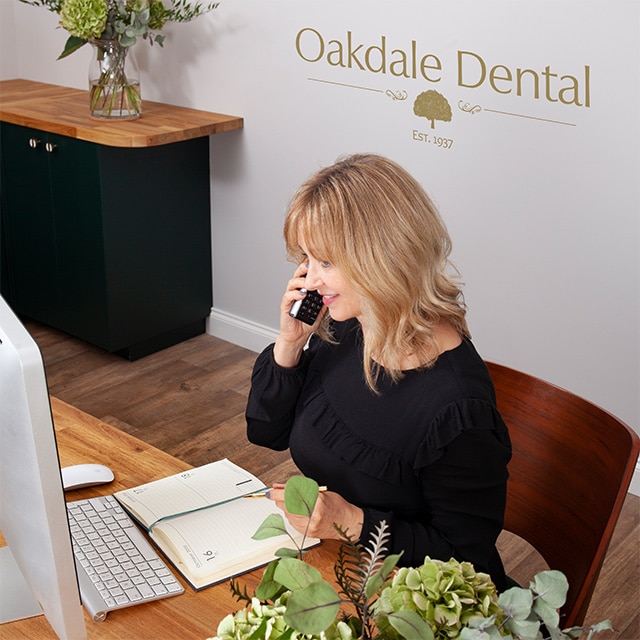First Class Experience
IV dental sedation for nervous patients in Leicester
Dental sedation is used if you are feeling anxious or worried about a procedure. Sedation allows you to go ahead and have treatment without feeling distressed.
IV dental sedation is a safe and effective way to make you feel relaxed and you remain conscious throughout your procedure.
Patients from Groby, Birstall and throughout Leicester may choose to have dental sedation if they:
- Have a dental phobia or feel anxious before dental appointments
- Want to go ahead with complex treatment but feel nervous
- Are having dental treatment which may cause discomfort
- Have a strong gag reflex
- Have had a bad dental experience in the past
Oakdale Dental Practice in uses intravenous (IV) dental sedation. This safe form of sedation uses a sedative that is injected into your vein hitting your bloodstream quickly. It gives you a deep sense of relaxation which means you can get the dental treatment that you want or need.
With IV sedation, you will remain conscious, and you won’t go to sleep, but you will feel extremely relaxed and drowsy. You will be able to respond to your dentist, but you won’t feel any pain and you may remember very little about the procedure afterwards.
What are the benefits of IV dental sedation ?
- IV dental sedation works well if you are frightened of seeing the dentist for any reason including – previous dental trauma, feeling anxious about the environment, worried about the procedure itself or the thought of experiencing pain
- IV dental sedation works quickly – as soon as it hits your blood stream, making you feel deeply relaxed
- This form of dental sedation enables even the most nervous patients to get the dental treatment that they desperately want or need
- IV dental sedation is completely safe when administered by a professional dentist
- With IV dental sedation, you remain conscious throughout the dental procedure, but you will be calm, drowsy and fully
How Does IV Dental Sedation Work?
Book Your Appointment Today
We understand that many patients are practicing social distancing and may not want to visit the surgery for dental consultations.
As a result, we’ve introduced e-consultations, eliminating any risk when discussing your dental treatment options.

